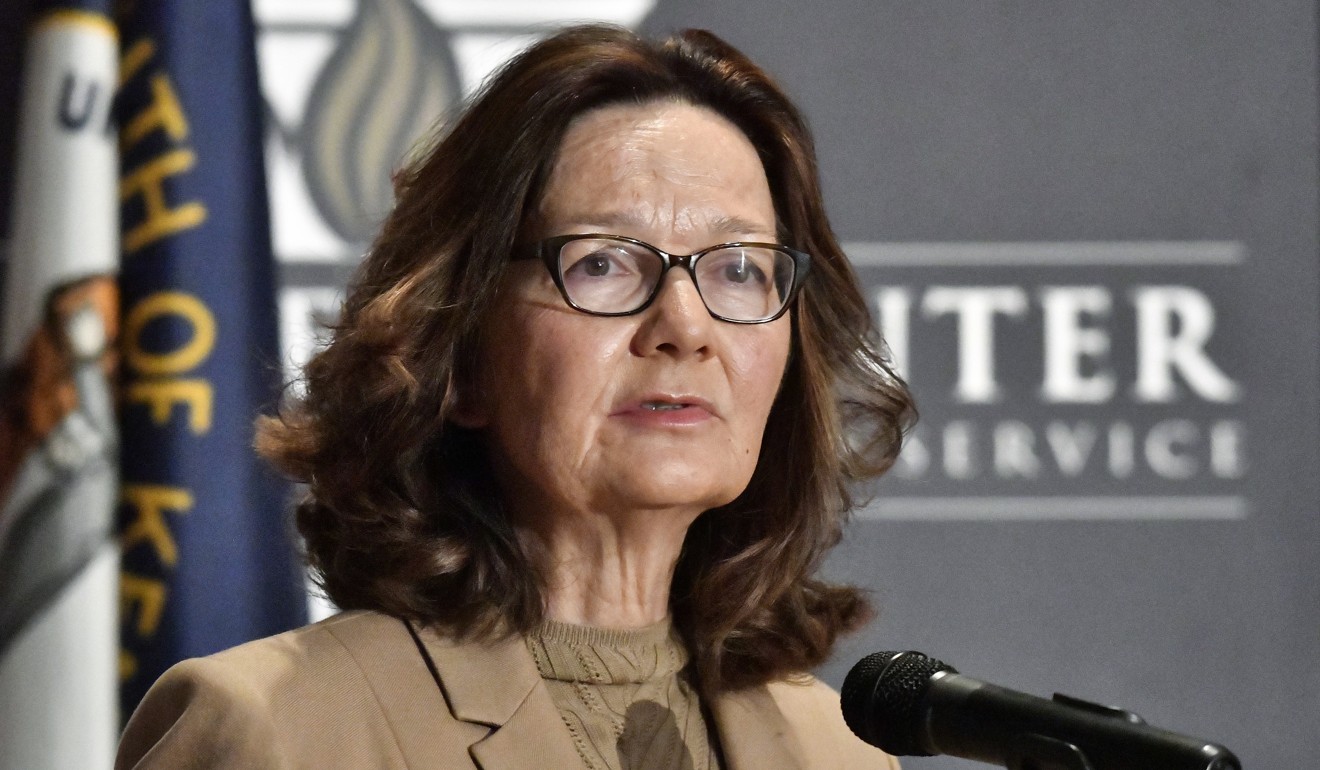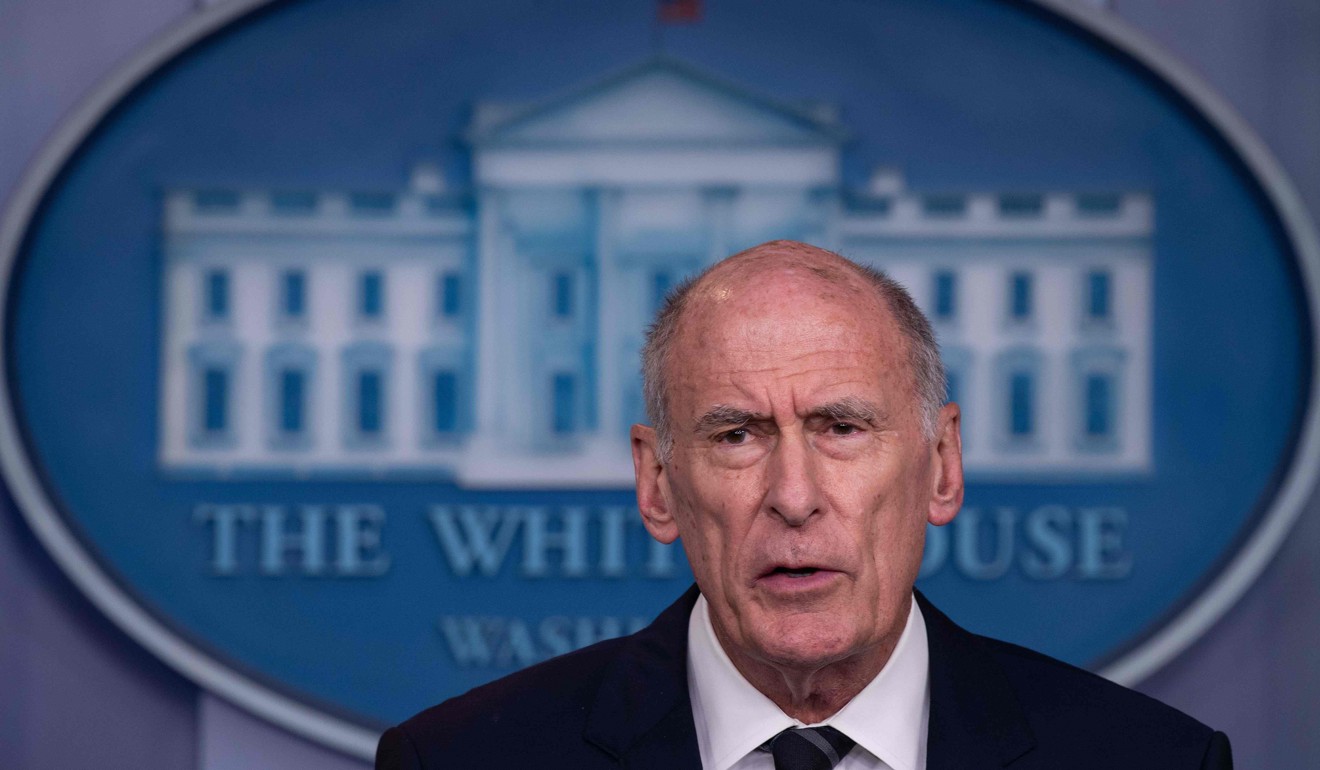
Cold war 2.0: US intelligence agencies put new emphasis on China and Russia
Officials see rival nations providing deeper challenges to spy agencies that have largely focused on Islamic terrorist groups in the Middle East since the September 11 attacks
As the intelligence community shifts its primary focus from counterterrorism to threats from Russia and China, some leaders voice a sense of déjà vu and even eagerness at the challenge.
“It has been a sort of reawakening of times of old, I will say,” said Deputy Director Justin Poole of the National Geospacial-Intelligence Agency, one of the 17 agencies and offices that make up the US intelligence community. “It’s a little more cold warrior-y.”
President Donald Trump singled out China this past week for what he said was intent to interfere in upcoming midterm elections. In separate speeches, the national intelligence director and the CIA director also emphasised the shift in strategy toward China and Russia.

For veteran intelligence officials, the refocusing evokes the more than four decades of the cold war when intelligence analysts and spies peeled back the capabilities of the Soviet bloc and sought to decipher how it intended to use its weaponry.
“Cognitive psychologists are going to have a very important role going forward in terms of being able to understand intent. We’re almost going back to the good old days, in some regards,” said Ellen McCarthy, an intelligence veteran who is the Trump administration nominee to lead the State Department’s intelligence branch.
Poole, speaking at a security conference at Georgetown University on Thursday, said rival nations bring a broader set of capabilities to the table, providing deeper challenges to spy agencies that have largely focused on Islamic terrorist groups in the Middle East and in and around Afghanistan since September 11, 2001.
“It’s a little different, a little more sporty,” Poole said. “You’re thinking about a near-peer state actor or two. The type of capabilities, tactics, techniques and procedures that they bring to bear are a lot more subtle.”
Asked by a moderator what he meant by “sporty,” Poole said he was thinking of “cyber, and also the race to automation, augmentation and artificial intelligence,” capabilities that rival nations would have in greater strength than terrorist groups.
Trump laid into China on Wednesday. Speaking at the United Nations headquarters, he accused China of seeking to influence the upcoming midterm elections in November, without providing details.
“Regrettably, we found that China has been attempting to interfere in our upcoming 2018 election coming up in November against my administration. They do not want me, or us, to win because I am the first president ever to challenge China on trade,” Trump said.
The remarks touched on themes hit a day earlier by Trump’s director of national intelligence, Dan Coats, in a speech at The Citadel in South Carolina, in which he flayed China for meddling in the US heartland.
“China is also targeting US state and local governments and officials. It is trying to exploit any divisions between federal and local levels on policy, and uses investments and other incentives to expand its influence,” Coats said, without offering further details.

On the cyber front, Coats unleashed a sharp warning on what he called China’s hostile hacking efforts, saying they were “unprecedented in scale”.
The first public sign that the intelligence establishment was putting new emphasis on rivalries with Russia and China came last February, when Coats presented his annual worldwide threat assessment to Congress.
“The risk of interstate conflict, including among great powers, is higher than at any time since the end of the cold war,” Coats said in the assessment, which placed the threat ahead of terrorism but less immediate than the risk of global cyber conflict.
CIA Director Gina Haspel also touched on renewed confrontation with rival nations in a speech on Monday at the University of Louisville, her first public comments since becoming director in May. She emphasised that her agency still carefully monitors Islamic terror groups.
“Groups such as the so-called Islamic State and al-Qaeda remain squarely in our sights, but we are sharpening our focus on nation-state adversaries,” Haspel said.
Intelligence officials have been increasingly stark in their public views about China’s intention to overshadow the United States as a global power.
“China is trying to position itself as the sole dominant superpower, the sole dominant economic power,” FBI Director Christopher Wray told the Aspen Security Forum in mid-July. He said China “represents the broadest, most challenging, most significant threat we face as a country.”

